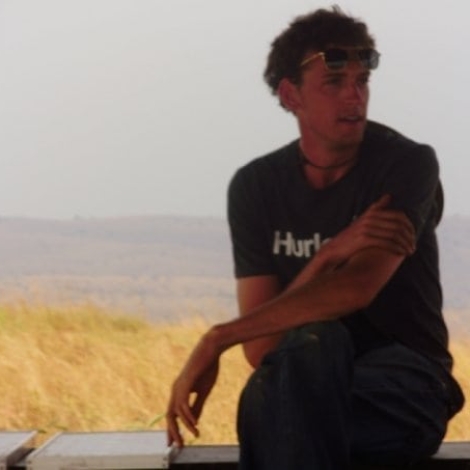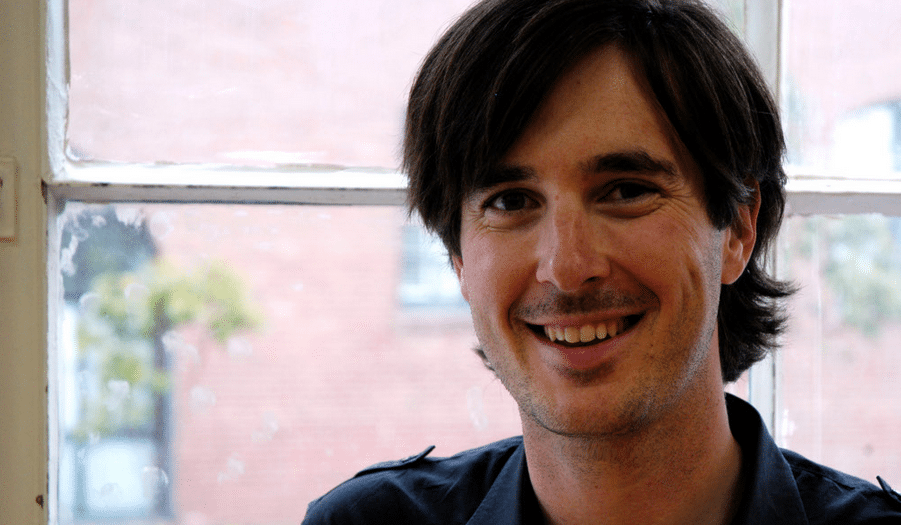
Sam Dargan founded a music production company to promote the solar LEDs and other devices that he sells in Rwanda. His company, Great Lakes Energy, Ltd, sells low-cost technologies that improve the quality of life in off-grid and under-served communities. To get the word out, he also founded Akira Urumuri Productions, which records local Rwandan artists who endorse the devices on radio interviews and even in their lyrics. For an example of their work, see our YouTube recording of the single“Power” by Diplomate, together with photos of some of the products that Great Lakes Energy sells. We asked Dargan five questions.
E4C: How do you choose the devices that you seLEDll and weed out the ones that won’t do well?
SD: The quality of the product is pivotal. A major factor in progressing along the adoption curve for the disruptive technology that is solar is establishing trust in the market. A $20-$50 investment is large enough to be a high risk for the rural consumer. A weak performing product will unravel efforts one makes towards building this trust.
Assessing the technical quality of a product is simple, yet does not provide conclusive answers. We deploy a handful of samples and survey the users for a few weeks. We meet with our stronger dealers, and get their feedback on the product. If possible, we talk to others who have been selling the product in other countries. User surveys and dealer feedback are useful, but do not go far in answering the question of quality. To properly understand product quality, one needs to be selling hundreds per month for a few years. And even then, a new component supplier above the manufacture link can change it all.
Assessing the quality of a supplier is therefore the more important activity. How does the supplier handle problems when they arise? Do they stand 100 percent behind their product? Do they treat you like you need to treat your clients?
The product one selects needs to be appropriate to the market and to the strengths of one’s operation. It needs to have sufficient quality as to not undermine brand development. But selecting the supplier is more important. A quality product that is not backed by a quality supplier will not last.
E4C: What is one of your best sellers and why has it been so successful?
SD: The Sun King Pro, made by Greenlight Planet, is the bestselling lamp we have sold. The product has a five-year life, a screen that communicates to users how much stored energy is remaining, and its ability to charge phones make it a desirable investment for rural, and urban, users. The failure rate is lower than any other product we have experienced.
E4C: When did you first realize that you’re in the right line of work? Is there a quick story you can tell us?
SD: I realized I was in the right place, Rwanda, almost immediately after I arrived. There was no shortage of available challenges, and seemingly infinite opportunity to engage any number of these challenges.
It was easy to see how the lack of electricity was holding people back, hindering progress. The challenge of economic development in which all of Rwanda was, and is, engaged also excited me. So I chose to engage in the challenge of rural electrification through a vehicle which would also engage me, albeit in a small way, in the greater challenge of the economic development of Rwanda: a for-profit business.
E4C: Ten years from now, what changes would you like to see in the communities where you work as a result of what you do?
SD: I would like to see the end of kerosene used for lighting. The economic cost is a burden to the household and the health costs, though not yet fully understood, are known to be high. We can’t achieve this in a single community as a result of “our” work however. It will take many of us.
Other companies selling products in these communities equals more promotion from more voices; more product variety on offer gives consumers choice and quickens the view of solar being a legitimate alternative in the eyes of the consumer. Manufactures that push the edge and bring available technology into consumer solar products and manufacturers that experiment with different product designs, grants that finance the required learning curves and investors who finance the progress — all these players will have a role in a single small community ceasing to use kerosene for lighting.
E4C: What is one of the most instructive mistakes that you’ve made, and what did you learn from it?
SD: In 2008 we won a grant from the World Bank to put our idea of a distribution network for solar consumer products to the test. We were convinced that we knew what to do: get the products on shelves in every market village and remove all constraints on the dealers. The products would fly off the shelves and the unrestrained dealers would carry us upward to success.
Removing constraints on our dealers proved to be counter-productive. Because they received the products on credit, they had little motivation to work to sell them. And as a new technology, it takes real work to get sales moving. So a typical dealer would passively sell a few products per month. At the end of the month, she sees that solar brought in not so much money, so she allots a similarly small amount of her time and effort to selling it. Whereas without credit, a dealer will be more encouraged to hit the ground running and put in the work required to get sales started and moving. She will sell more, faster, and will continue to allot more and more of her time and resources to its promotion.
The most valuable lesson we learned is that one cannot rush success. We thought we could cheat this concept and make success easy and fast. Operating on this fallacy, we established 157 dealers in less than one and a half years. This was our ultimate error.
Our friends at Barefoot in Uganda understood this principle of success leading to success. By the time we had 75 dealers, they had six. I recall thinking how much more clever we were at the time. In reality, we were doing nothing but losing money building a structure so weak it would crumble the moment we stopped holding it up. Whereas our friends in Uganda established one dealer at a time, building on small success after small success. They put in the work, took the slow road (which is the only road that arrives at the destination) and today they have the strongest distribution network for solar lamps in East Africa.
Related resources
Clean-tech awareness, brought to you by…
Hip hop and other musical artists are promoting solar LEDs and clean technologies in Rwanda.
How to successfully distribute water filters
Aqua Clara International creates jobs and life-saving devices.

